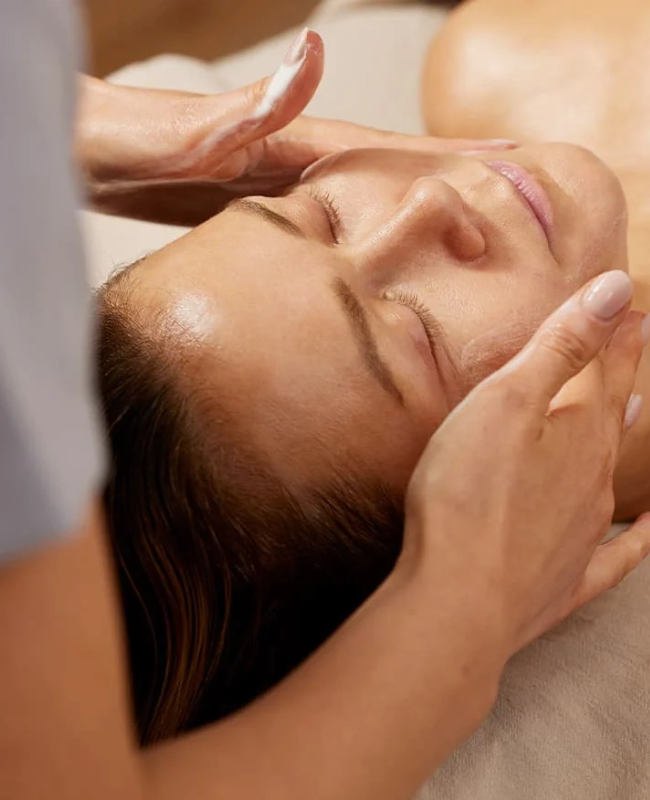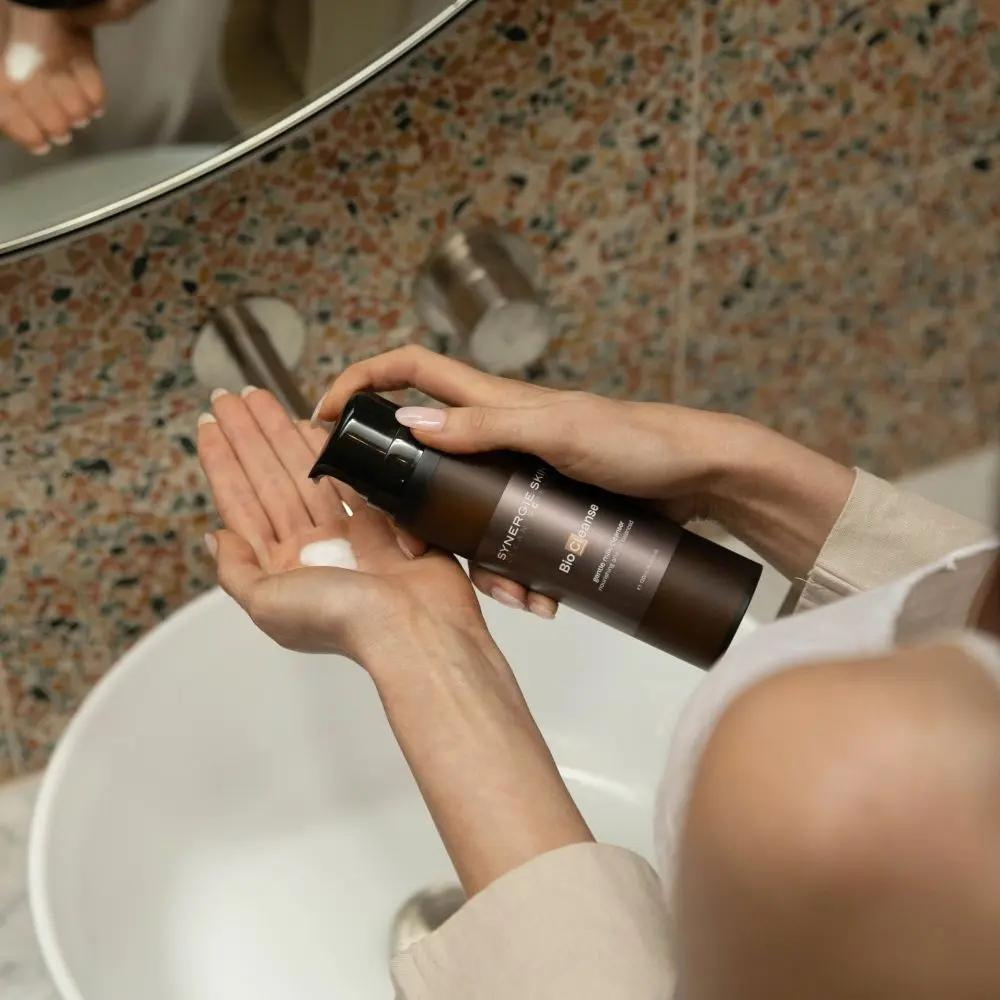Vitamin C skincare – the skin benefits and how it works

I consider vitamin C to be the great skin fortifier. It protects our vulnerable cell membranes from the ravages of solar radiation and environmental aggression. This powerful antioxidant is the most abundant vitamin in our skin, but we can’t make it ourselves. So, this means adding vitamin C to your diet and skincare is imperative!
Apart from its antioxidant properties, vitamin C brings a host of additional benefits to the skin and there is no reason for anyone not including vitamin C in their routine. So how does it work, which form of vitamin C is best for you, and how can you best incorporate this wonder-active into your daily routine? Read on, and all will be revealed...
First Off, The Benefits
1. Vitamin C is a potent antioxidant
Antioxidant is a word that gets thrown around a lot from diets to skincare, but what does the term mean, exactly? Well, put simply, an antioxidant is a compound that inhibits a chemical reaction called ‘oxidization’. And why would we want to prevent this chemical reaction in our bodies? Because oxidization is a significant cause behind cell deterioration, aging and inflammation in living organisms through a series of chain reactions; including the production of damaging free radicals.
Vitamin C is an antioxidant that is especially effective in neutralizing free radical damage to protect the cell membrane (this first line of defense in our cells) as well as your DNA which codes the blueprint for all our body processes. As a result, vitamin C can accelerate the healing process of scar tissue and is a potent preventative against premature aging. This is what I mean when I call it the great skin fortifier, especially when it comes to anti-aging skincare!
2. Vitamin C has anti-inflammatory properties
Do you suffer from skin redness or inflammation? Vitamin C can certainly help with this. By reducing the activation of cellular molecules called transcription nuclear factor kappa β (NF-kB), vitamin C effectively reduces the release of inflammatory factors in cells called pro-inflammatory cytokines. In other words, vitamin C can counteract skin inflammation at the source. How cool is this?
3. Vitamin C stimulates collagen production
Simply put, without vitamin C, our skin can't make collagen! This makes vitamin C an essential component to any anti-aging skincare routine. Let's jump into some fun science now!
- Vitamin C is directly responsible for collagen production by stabilizing a special molecule in our cells called pro-collagen mRNA. When vitamin C and pro-collagen mRNA interact, collagen can be produced.
- Vitamin C also acts as an essential cofactor for 2 enzymes (prolyl hydroxylase and lysyl hydroxylase) which are fundamental to collagen synthesis.
- In addition to fulfilling this active role, vitamin C simultaneously plays a passive role in protecting our skin against collagen breakdown. Vitamin C silences the natural chemical enzyme called MMP1 in our skin that destroys collagen.
- As a result, vitamin C is vital for collagen production and protection so that we can all maintain that youthful firmness.
4. Vitamin C protects from UV damage
This vitamin is the best antioxidant partner with sunscreen! Vitamin C protects our skin cells from free radical damage created by UVA and UVB light (this kind of damage is evident in 90% of skin cancer sufferers). It has been clinically shown that vitamin C reduces cellular and DNA damage from UV light. It’s important to note, however, that vitamin C is not considered a sunscreen
5. Vitamin C is an antioxidant power couple with vitamin E
Vitamin C replenishes and reactivates vitamin E, which in turn protects vitamin C from breaking down. These two vitamins are a great power couple that work in synergy (pun intended) to protect our cells.
6. Vitamin C brightens and evens out skin tone
Vitamin C is an important skincare product for those suffering from hyperpigmentation or uneven skin tone as it is a skin lightener and tyrosinase inhibitor. Tyrosinase is a protein enzyme found in our pigment-producing cells, the melanocytes. If there’s too much tyrosinase activity, this can cause overproduction of melanin which will appear as sunspots or other forms of pigmentation. So, if tyrosinase is suppressed with the help of vitamin C, then excess melanin can’t be made! As a bonus, vitamin C only appears to target areas that are patchy whilst leaving the remainder of your skin alone. How clever is that?

Who can use vitamin C?
Everyone can and should use vitamin C! Antioxidants are as vital for the skin as they are for our diet. Because we can’t produce vitamin C, we need to access it in the form of food, supplements, and skincare. Our skin absolutely needs vitamin C, however we all exist on a spectrum of skin tolerance when it comes to acidity and particular types of ingredients, so it’s important to find the form of vitamin C that best complements your skin type – especially those with sensitive skin. (More details on the different forms of vitamin C below).
Your vitamin C routine
Incorporating vitamin C into your daily routine is as easy as ABC! Because vitamin C has a protective effect from solar and environmental free radical damage, I would recommend using this skincare essential in the morning before exposing your cells to harmful UV rays. You want to get your skincare army mobilized, and start the day with your first line of defense - vitamin C. In the morning, use vitamin C and solar protection since both protect the skin from solar damage. Please note, vitamin C is not an actual sunscreen but an essential part of the support team.
Are there side effects?
Some derivatives of vitamin C can occasionally cause skin irritation, so it is always advisable to test it on a small patch of skin for a few days before launching into daily use. Pure L-ascorbic acid, while considered the benchmark of active vitamin C, may not be tolerated by some individuals due to the acidic pH needed to drive this ingredient into the skin.
Keep in mind that acids should not be mixed with retinol (a common form of vitamin A) or niacinamide. When the acidity of the product is too high, niacinamide and retinol undergo a chemical reaction and they no longer work effectively, so as a general rule you really need to use your Cs in the morning and keep your A and B vitamins for overnight regeneration.

Types of vitamin C
Not all forms of vitamin C are created equal. Ultimately, all vitamin C derivatives must eventually be converted to L-ascorbic acid since this is the only bioidentical form of vitamin C that skin cells recognize.
This is why many products often boast about 'L-ascorbic acid conversation rates', since the overall efficacy of any vitamin C formula is graded on how well it converts to L-ascorbic acid once absorbed into the skin. Second to this is the delivery system i.e. how well the vitamin C derivative penetrates the skin before conversion takes place. Below are the following types of vitamin C, and my personal opinions on how effective I believe they are in the landscape of skincare.
L-Ascorbic Acid: Considered the gold standard
L-ascorbic acid will only be effective if it is delivered to the target skin cells where they can exert their benefits. In skincare, a very small particle size is required for easy absorption and thankfully L-ascorbic acid ticks this box. L-ascorbic acid is water-based and has a hard time penetrating unless it is used at pH less than 3.5. Doctor Sheldon Pinnell, dermatologist and pioneering vitamin C scientist, also discovered that the optimal dose of pure L-ascorbic acid is 20%.
L-ascorbic acid is highly unstable and readily oxidized in the presence of water, oxygen and heat, rendering it effective only in the short-term. Most L-ascorbic acid serums on the market contain water in the final formula, and this results in the molecule being oxidized within just days, making the product ineffective within a week or two of opening, and sometimes while the product is still sitting on the shelf! I would advise seeking L-ascorbic acid in dry powder form, which is very stable prior to activation with a serum or even plain water.
So, let’s deep dive into the most popular (but not necessarily the most effective) forms of vitamin C available today.
Ascorbyl Tetraisopalmitate (ATIP)
ATIP is one of the most stable forms of vitamin C on the market and is an ideal choice for all skin types, even the most sensitive. Upon topical application, ATIP has a massive 84% conversation rate into free L-ascorbic acid and demonstrates superior absorption due to its lipophilic (oil-loving) nature. Ideal for sensitive skin types, ATIP can penetrate skin on an enhanced level, ensuring controlled and targeted intercellular penetration, which reduces the likelihood of irritation. This incredible derivative of vitamin C has been shown to exert free radical neutralizing effects within 30 minutes of application and is active for up to 40 hours post application. Results from a clinical study have shown ATIP to reduce hyperpigmentation by up to 80%*. This exciting new vitamin C is one of my most highly regarded derivatives currently available and I have just made the switch to this derivative after using pure L-ascorbic powder for almost 20 years!
Magnesium Ascorbyl Phosphate (MAP)
This is a relatively popular form of vitamin C. It’s fairly stable in a serum compared to L-ascorbic acid serum, but it doesn’t penetrate the skin as effectively and is not as good at defending the skin against free radical attack as the original ascorbic acid. It’s also very difficult to convert into L-ascorbic acid in the skin so very high doses are needed to create the desired results.
Ethyl Ascorbic Acid
Ethyl ascorbic acid is a tiny water-soluble molecule that reaches target skin cells effectively and gets converted to L-ascorbic acid very easily compared to other derivatives. It is stable and has shown to be superior to MAP and ascorbyl glucoside in reducing the formation of melanin. This derivative may cause some skin irritation, so it is recommended for more robust skin types.
Ascorbyl Palmitate
This is a fat-soluble form of vitamin C. It’s not as effective as pure L-ascorbic acid because it is unstable, less biologically active than L-ascorbic acid, and just like MAP, it’s very difficult to convert to active L-ascorbic acid. There is also concerning new data stating this ingredient is not recommended for daytime use due to accelerated skin damage when combined with UVB solar radiation.
Ascorbyl Glucoside
This is a moderately stable form of vitamin C but my concern is that it produces glucose when it’s converted to the active form of L-ascorbic acid in the skin. I have reservations about glucose molecules floating about in the dermis and aging the skin cells. For this reason, it is not my preferred vitamin C derivative.

Conclusion
So, to wrap up, vitamin C is a powerful cosmeceutical and a potent antioxidant with incredible active and defensive capabilities for contributing to the overall health of your skin and preserving its longevity. It should be used by everyone as part of their morning skincare routine, and is especially vital for an anti-aging skincare routine, but those with sensitive skin should be careful when landing on the appropriate vitamin C ingredient to incorporate into their daily life. Acidity (low pH) is a major factor for irritation, so if your skin is prone to irritation or can’t tolerate acids, then I’d recommend opting for lipophilic alternatives such as Effica C serum.
As always, read labels carefully and be conscious of how vitamin C may interact with other products/vitamins.





